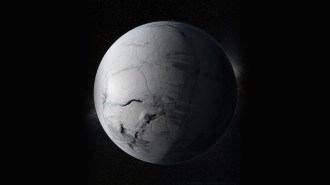IPCC looks to vet, report climate-science better
Major U.S. science organizations aren’t the only ones to realize that the climate-science community has bungled – and badly – its portrayals of research on global change in recent months, if not years, and its responses to criticisms. Yesterday, the Intergovernmental Panel on Climate Change (a group established by the United Nations and World Meteorological Organization) said: “we recognize the criticism that has been leveled at us and the need to respond.” So will be convening an “independent review” panel to investigate what the organization’s procedures should be to vet not only the data it uses and how to synthesize conclusions based on those data, but also how it should convey those conclusions (and any necessary caveats) in reports to the public and policymakers.
The IPCC has a new (fifth) assessment of climate data and trends underway. One that should lead to a series of new reports within a few years.
In light of recent controversies, such as the Himalayan glacial-melt fiasco, IPCC chairman R.K. Pachauri said yesterday in a prepared statement on his organization’s website that “it was the intention of the IPCC that an independent committee of distinguished experts evaluate means by which IPCC procedures must be implemented fully and that they should also examine any changes in procedure that may be required.”
Presumably, this includes how to deal with gray literature, how to describe conclusions or trends based on data – some of which may have significant uncertainties associated with them, and how to portray findings in ways that are divorced from politics.
Pachauri didn’t apologize for the IPCC’s past work. “[W]e stand firmly behind the rigour and robustness of the 4th [2007] Assessment Report’s conclusions . . . based on an overwhelming body of evidence from thousands of peer-reviewed and independent scientific studies.”
Details of the independent panel and its mission should be available within a few weeks, Pachauri said.







